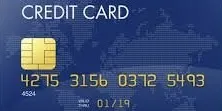

The uncommon risk of India's credit card pioneer
"Uncommon" risks are not the sole purveyor of entrepreneurship or a onetime act. However, it is best to embrace the risk when young.

Risks are not boring. They are an assortment of multi-dimensional choices and options that involve change, doubt, uncertainty, and insecurity. Almost, every decision by design or unknowingly involves an element of risk. To do or not to do is also a risk. The risk of taking the next risk or the risk of status quo is also a risk. But unusual picking, uncharacteristic choices and uncommon decisions invariably exert a long-term influence over people and society.
The younger you are the easier it is for you to walk the unexpected path - strange are the ways of life. The corridor of unconventional risks can come knocking at your door much later in life. You can better handle the atypical perils if you have lived the aberrant risks when young.
In the late 1980s, my father Vijay Mehta was asked to "set up and head" the credit card division at ANZ Grindlays Bank, India (it used to be the largest foreign bank in South Asia). Until then all cards in India were charge cards.
The bank wanted a heavyweight to head the profitable credit card business. In a country where credit was considered a dirty word, telecommunications were in its infancy, access to skilled consumer lending or credit card professionals was almost non-existent, there was no credit bureau or localized credit scoring model, setting up a credit card division (from scratch) to cater to the Indian consumer was a huge risk.
As if this was not enough, he was expected to launch a nationwide product with meagre resources. The mandate was to show profits in less than three years. It is public knowledge that credit card business is capital and technology-intensive that takes on an average three years to break even.
My father was on the horns of a dilemma. He had a cautious corporate and branch banking mindset and knew little about the credit card business. He was given to understand that managing risks of a credit card business may be more complicated than managing big-ticket corporate loans. But he had a choice. He could have turned down one of the biggest challenges of his career and got somebody else to take up the mantle. It was a time when he was well entrenched within the banking fraternity. He had children who were in school. He knew that the odds to succeed were stacked against him and if he botched it, his career would be scarred and perhaps over.
While he could turn to advise to his trusted colleagues and friends within the financial services industry, the decision had to be his own. For a long time, he felt alone and lonely. It was a tough call. The probability of succeeding was remote and he felt he was inches away from marring his banking career. Yet, the true leader dwelling within goaded him to cut the Gordian knot. He rose to the occasion, took up the challenge and in the late 1980s, successfully pioneered and launched the first credit card in India—ANZ Grindlays Bank Credit Card.
Every risk provides an opportunity, and every opportunity provides another opportunity. In 1993, my father quit ANZ Grindlays Bank to start another first of its kind: CCMC, India's first credit card, and plastic money consultancy service. The advisory service went onto receive varied assignments from reputed companies within India, the US, Canada, Australia, and Germany. The consultancy service also found regular coverage in prominent print, electronic and online news media companies within India and overseas.
Some years ago, a senior banker with a financial services organization remarked, " Mr Mehta, you are the grandfather of the credit card business in India. We have a lot to thank you for. You set the trend and India is on its way to becoming one of the most exciting plastic money and payments markets in the world. You should be proud of yourself."
Dad can look back with a lot of satisfaction because with the introduction of credit cards, he sowed the seeds for making the lives of millions of Indians rather "convenient" be it travel, entertainment and retail sojourns, crisis, emergency and medical management, utility bills payment or education fee payout.
Dad has since suggested, “You can take career-defining unconventional risks even on a job. Uncommon risks are not the sole purveyor of entrepreneurship or a onetime act. However, it is best to take the exceptional big risk when young and below 45. If it does not pay off, you would still have 10-15 important years to re-work your career."
Remember it is natural to play safe, but if you can avoid the herd mentality, stretch beyond what you think is possible and embrace the unusual risk, particularly when young, it will hurt less if it does not work out as planned. However, if it does pan out as envisaged, the more likely you are to be the vanguard of change.




